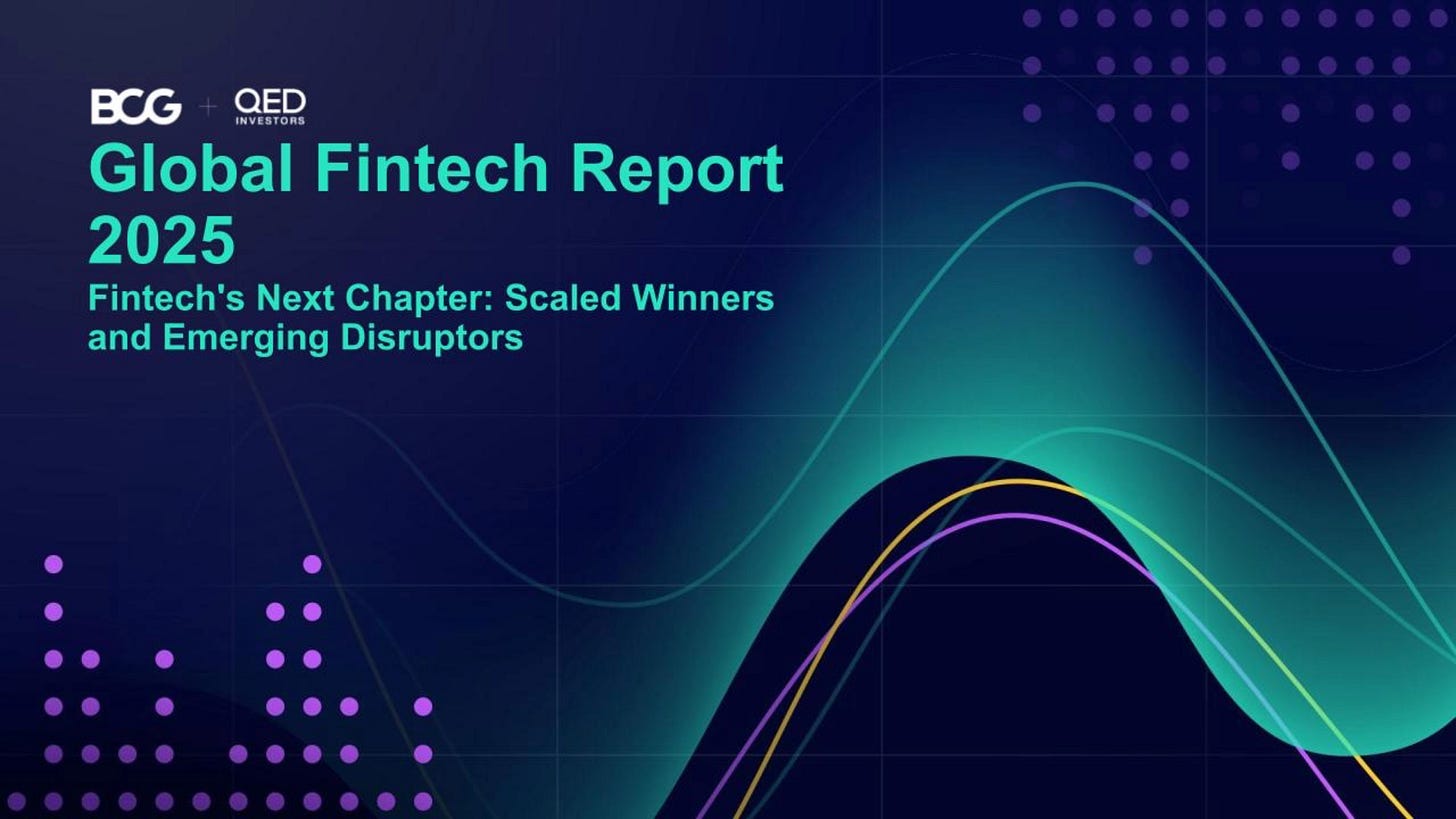Reports: Crypto Tax in the USA: What You Need to Know for 2025; The Agentic Oversight Framework; The Evolution of Tokens Over The Years;
Let’s dive into this week’s curated collection of fintech reports, whitepapers, and expert guidelines in the latest edition of Fintech Wrap Up. Every resource featured is available for download
Reports:
1️⃣ Crypto Tax in the USA: What You Need to Know for 2025
2️⃣ Blockchain as an anti-corruption tool
3️⃣ Forecast: Five Trends That Will Shape Fintech’s Next Chapter
4️⃣ The Agentic Oversight Framework
5️⃣ Best-In-Class Modern Card Issuer
6️⃣ The Evolution of Tokens Over The Years
7️⃣ Unleashing potential in Islamic Banking
TL;DR:
Welcome to the latest edition of Fintech Wrap Up — your snapshot of what’s shaping the financial future.
First up: crypto tax in 2025. The IRS still treats crypto as property, meaning capital gains rules apply when you sell, trade, or spend. Short-term gains are taxed like income, while long-term holding gets you lower rates. Mining, staking, and airdrops count as income. And starting in 2025, new broker reporting rules (Form 1099-DA) kick in—so meticulous record-keeping is non-negotiable.
Next: blockchain isn’t a magic fix for corruption. As the U4 report shows, it works only when layered onto already-functional systems—like Georgia’s land registry. In places lacking digital infrastructure and political will, blockchain trials flopped. Transparency without trust or data quality just creates immutable mistakes.
Looking ahead, BCG outlines five fintech trends to watch. Agentic AI is making compliance faster and cheaper. Onchain finance is shifting from stablecoins to tokenizing real-world assets. Challenger banks are scaling vertically, not globally. Lending is heating up with private credit eyeing fintech deals. And the next growth wave lies in B2B infra and embedded finance.
Also in this issue: AI agents in compliance (via Sardine) are proving faster and more precise than humans. And top card issuers are boosting customer lifetime value through smart partnerships, personalization, and platform innovation, according to PYMNTS x Visa DPS.
Finally, Binance Research explores how crypto tokens have evolved—from ICOs to DeFi to today’s push for utility and sustainability. The future? It may all hinge on regulatory clarity.
Thanks for reading Fintech Wrap Up!
Insights
Reports
Crypto Tax in the USA: What You Need to Know for 2025
Key Tax Deadlines for 2025
- Standard Filing Deadline: April 15, 2025
- For U.S. Citizens Abroad: June 15, 2025
- Extended Filing Deadline: October 15, 2025
🔹 IRS Classification and Taxation of Cryptocurrency
The IRS treats cryptocurrency as property, similar to stocks or real estate. This classification means that transactions involving cryptocurrencies are subject to capital gains tax if sold, traded, or spent, and the gains depend on the holding period and income level. Additionally, earnings from activities like mining, staking, airdrops, or receiving crypto as payment are taxed as ordinary income based on the fair market value at the time of receipt. The IRS mandates comprehensive records of all crypto transactions, including wallet-specific details.
🔹 Capital Gains Tax Rates
- Short-Term (Held ≤ 1 Year): Taxed at ordinary income rates (10%–37%)
- Long-Term (Held > 1 Year): Taxed at reduced rates (0%, 15%, or 20%), depending on income level
🔹 NFTs and Collectibles
NFTs may be considered collectibles if they represent items like art or antiques. If classified as collectibles, long-term capital gains on NFTs can be taxed at up to 28%, which is higher than the standard rate for other crypto assets. Short-term gains on NFTs are taxed at ordinary income rates.
🔹 Enhanced Reporting Requirements
- Form 1099-DA: Mandatory broker reporting begins in 2025, requiring detailed transaction disclosures.
- Record-Keeping: The IRS mandates comprehensive records of all crypto transactions, including wallet-specific details.
🔹 Strategies to Mitigate Tax Liability
- Long-Term Holding: Holding crypto assets for over a year can qualify for reduced tax rates.
- Charitable Donations: Donating crypto to qualified charities can avoid capital gains taxes and may allow for deductions based on fair market value.
- Estimated Tax Payments: If expecting to owe more than $1,000 in taxes from crypto activities, the IRS requires making estimated payments throughout the year to avoid penalties.
Keep reading with a 7-day free trial
Subscribe to Fintech Wrap Up to keep reading this post and get 7 days of free access to the full post archives.



